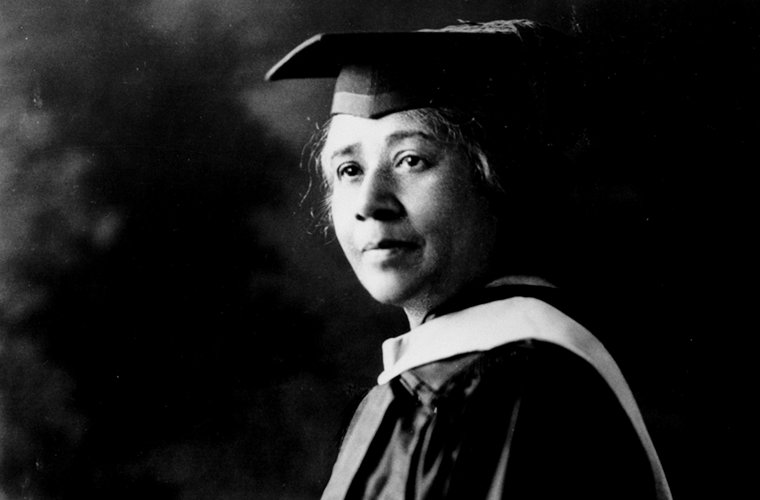Anna Julia Cooper (1858 – 1964) was a visionary black feminist leader, educator, intellectual, and activist. She rose to prominence as one of the country’s most eloquent and outspoken advocates for race and gender equality. She was born into slavery in Raleigh, North Carolina in 1858, but she did not let her humble origins limit her aspirations. She pursued a world-class education and became one of the most prominent African American scholars in United States history. She was also a pioneer in the field of sociology and one of the first articulators of black feminism.
Cooper’s life was marked by both achievements and challenges. She attended Saint Augustine’s Normal School and Collegiate Institute, a school for freed slaves, where she excelled as a student and a teacher. She married her classmate George Cooper in 1877, but he died two years later, leaving her a widow at 21. She then enrolled in Oberlin College in Ohio, where she earned a bachelor’s and a master’s degree in mathematics. She faced discrimination at Oberlin, where women were discouraged from taking advanced courses and black students were segregated from white students.
In 1887, Cooper moved to Washington, D.C., where she became a faculty member at the M Street High School, a prestigious school for black students. She taught mathematics, science, and Latin, and later became the principal of the school. She also became involved in the black women’s club movement, a network of organizations that promoted social reform, education, and civic engagement among African American women. Cooper was a frequent speaker at local and national conferences, where she addressed issues such as racial oppression, gender inequality, lynching, education, and civil rights.
Cooper’s most famous work is A Voice from the South: By a Black Woman of the South, published in 1892. It is widely regarded as one of the first books of black feminism, as it argues for the centrality of black women’s experiences and perspectives in the struggle for racial justice and human dignity. Cooper wrote that “the colored woman of to-day occupies…a unique position in this country” and that “only the BLACK WOMAN can say ‘when and where I enter…then and there the whole Negro race enters with me.’” She challenged the stereotypes and prejudices that devalued black women and called for their full participation in society as equal citizens.
Cooper’s achievements did not go unnoticed by her opponents. In 1906, she was removed from her position as principal of M Street High School after a controversy over her curriculum and management style. She continued to teach at the school until 1930, but she also pursued other interests. In 1914, she helped found Frelinghuysen University, a school for adult education for black students who were denied access to higher education. In 1924, she earned her PhD in history from the Sorbonne in Paris, becoming the fourth African American woman to receive a doctoral degree. Her dissertation was titled The Attitude of France on the Question of Slavery Between 1789 and 1848.
Cooper lived a long and productive life. She retired from teaching in 1930, but she remained active in various civic and educational organizations. She also raised five foster children after her brother died. She died in 1964 at the age of 105, having witnessed the abolition of slavery, the rise and fall of Jim Crow, two world wars, and the beginning of the civil rights movement. She left behind a legacy of scholarship, activism, and inspiration that continues to influence generations of black feminists and social justice advocates.

